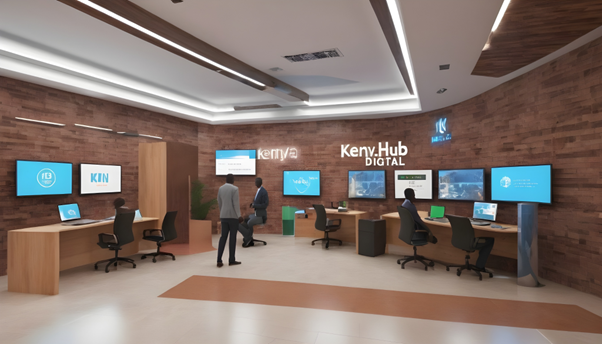
@Konza city
Kenya is one of the fastest-growing sub-Saharan economies; the government has implemented an ambitious plan to elevate it to an "upper middle-income country" by 2030. With a population of nearly 50 million, the country boasts a young, educated, and English-speaking urban population.
International investments and Africa's Silicon Valley
Dubbed "Silicon Savannah" at times, Kenya's dynamic tech scene is home to some of the most cutting-edge startups on the continent. The lack of formal infrastructure in Africa has acted as a catalyst for the explosion of technologies in the country. Benefiting from some of the world's highest mobile internet speeds thanks to submarine fiber optic cables, Kenya is truly a connected economy. Its tech ecosystem, estimated at USD 1 billion, provides an attractive environment for companies, investors, and high-tech professionals, already hosting leading firms such as Facebook, Microsoft, IBM, and Intel.
Kenya offers numerous opportunities for Swiss companies capable of addressing African needs with sophisticated ICT solutions. A prime example is the revolutionary mobile payment service M-Pesa. This product has transformed even the most basic mobile phones into secure bank accounts capable of transferring funds without requiring significant expansion of banking infrastructure. Today, Kenyan fintech solutions are pioneering in cross-border payments and microfinance. Nearly half of the world's registered mobile bank accounts are located in the region; startups like M-Pesa place Kenya at the forefront of the emerging fintech sector, to which Swiss companies have much to offer.
Similarly, with the establishment of the innovation hub iHub in Nairobi, Kenya kickstarted the proliferation of technological "hubs" across Africa. This sector provides Swiss companies with remarkable opportunities to engage with ICT professionals who understand the local context and can establish dynamic and fruitful partnerships.
Industry analysts predict continued growth in Kenya's ICT market; ever-increasing connectivity is expected to generate a variety of opportunities for innovative Swiss companies.
Areas experiencing rapid growth include financial services, the Internet of Things, artificial intelligence, cloud solutions, data analytics, mobile gaming, internet television, e-learning solutions, and virtual reality simulators, among others.
Meanwhile, Konza City, the developing Kenyan smart city, has already seen the arrival of several tech giants: Microsoft has established a research and development center there, Google announced last April that it would do the same, and Amazon has set up a remote server center in Nairobi.
Government commitment

The Kenyan government has played a key role in creating a conducive environment for technology companies. Policies favorable to startups and foreign investments have been implemented, bolstering entrepreneurs' and investors' confidence in the sector. The promotion of STEM fields and the government's mandate for teaching basic coding skills from primary school are notable initiatives.
While these factors have contributed to positioning Kenya at the top of the African technology market ranking, it's essential to note that the situation is subject to rapid changes in the African technological landscape. Observers and investors closely monitor this trend to understand its long-term impact on Kenya's economic development and its potential influence on other nations on the continent.
Meanwhile, Kenya has become a preferred destination for American tech giants, who see it as a pool of young talent and innovation. Kenyan President William Ruto recently undertook a two-day visit to Silicon Valley to promote his country's strengths and forge partnerships with companies like Apple, Microsoft, and Google.




